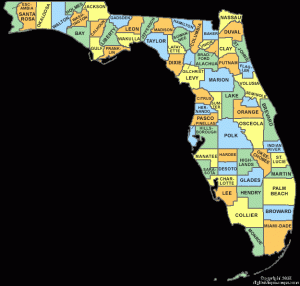Florida’s Proposed Judicial Protection Act: the Dangers of Secret Chambers
 Recently, the Trial Court Performance and Accountability Commission proposed a rule that would limit the public’s access to court information in Florida. For almost 20 years, the court reporting office at the Palm Beach County Courthouse has furnished the public with recordings of court proceedings for a nominal price. However, the proposed rule would limit public access to recordings, making them available only after they have been edited and approved by a judge. The rule would also force people to buy transcripts at an increased cost, as much as $4.50 per page (which translates to hundreds or even thousands of dollars per case!).
Recently, the Trial Court Performance and Accountability Commission proposed a rule that would limit the public’s access to court information in Florida. For almost 20 years, the court reporting office at the Palm Beach County Courthouse has furnished the public with recordings of court proceedings for a nominal price. However, the proposed rule would limit public access to recordings, making them available only after they have been edited and approved by a judge. The rule would also force people to buy transcripts at an increased cost, as much as $4.50 per page (which translates to hundreds or even thousands of dollars per case!).
Many Floridians, including lawyers for the First Amendment Foundation in Tallahassee and the Florida Association of Public Defenders, oppose the proposed rule. Some are concerned that citizens’ access to public information will be severely limited. And public defenders have complained that they don’t have the budget to buy transcripts, which could unduly prejudice defendants whose cases depend on proving improper courtroom conduct. Others worry about giving judges full discretion over who has access to public proceedings. Some lawyers have nicknamed the rule the “Judicial Protection Act, based on the belief that the commission (which is largely comprised of judges) proposed the rule in order to protect their public behavior from being broadcasted to outsiders, including media such as YouTube.
Proponents of the rule claim that it is intended to protect citizens’ private information, which can be disclosed during courtroom proceedings; for example, bank account and Social Security numbers can be divulged at child support hearings, and microphones can inadvertently pick up confidential conversations between attorneys and clients.
It makes sense to me that confidential information about parties should be edited before recordings or transcripts are released to the public. However, private citizens and attorneys with limited resources must be able to access these materials at a reasonable price. Additionally, because unfortunately not all judges are upstanding arbitrators of justice, impartial third parties should be the ones editing the materials, not the judges themselves. Otherwise, the risk of bias is too great, and the purpose of the courts – to provide justice for all – will be lost.


Comments